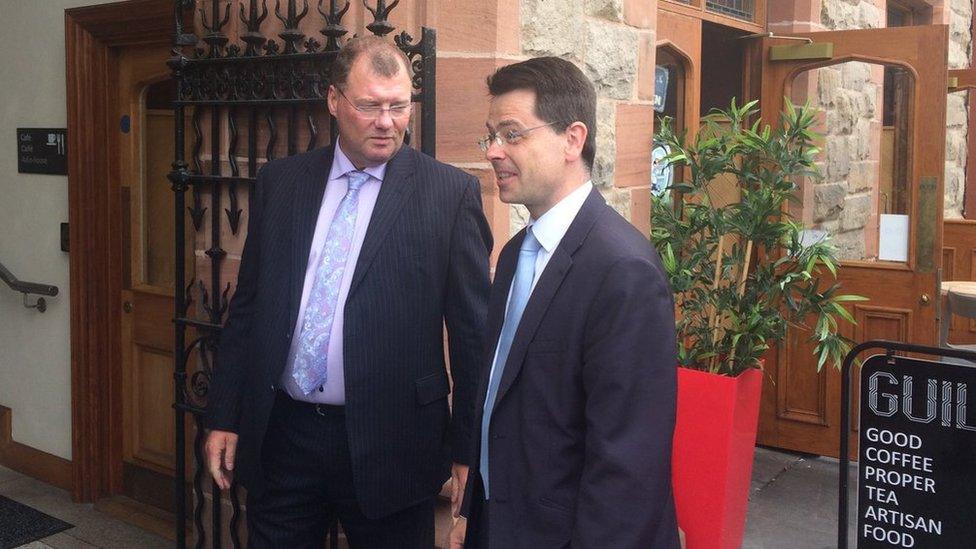Six Northern Ireland councils bid to secure £1bn for jobs
- Published
- comments
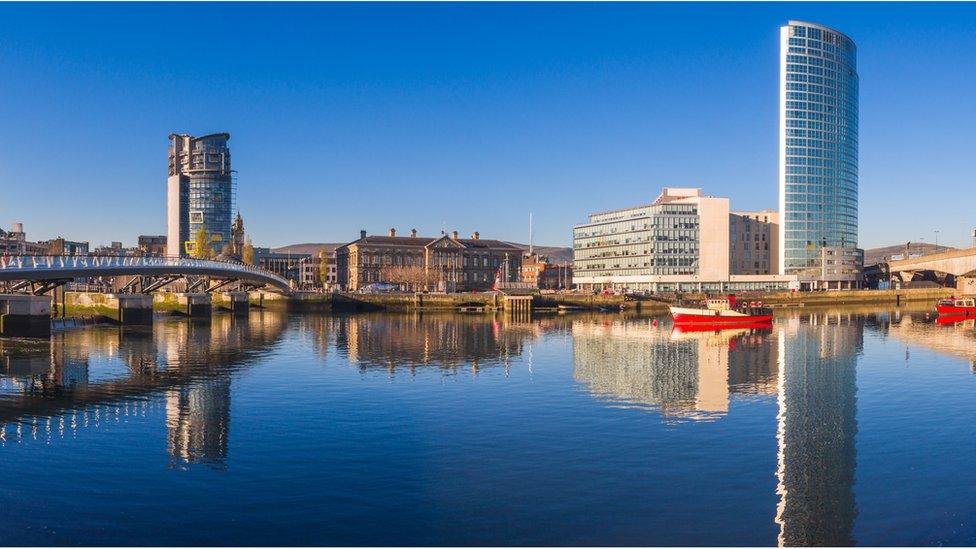
Six councils in Northern Ireland have submitted proposals to the government which could create 20,000 jobs over 10 years.
They hope to secure £1bn from the Treasury and other sources as part of a city deal.
City deals are packages of funding and decision making powers which allow councils to boost the economy through large projects.
Universities and colleges have also worked on the proposals.
Funding will come from the Treasury, the executive and councils.
Northern Ireland has been without a power-sharing administration since January 2017, but that should not hinder a city deal being given the green light.
Chancellor Philip Hammond will announce if the investment will get the go-ahead and how much the government will provide in his Autumn budget.
The aim is to secure £450m from the Treasury which will be matched by the executive.

What is a city deal?
A City Deal is an agreement between government and a city. It gives the city and its surrounding area certain powers and freedom to:
Take charge and responsibility of decisions that affect their area
Do what they think is best to help businesses grow
Create economic growth
Decide how public money should be spent

Belfast City Council has partnered with councils Antrim and Newtownabbey, Ards and North Down, Lisburn and Castlereagh, Mid and East Antrim, and Newry, Mourne and Down, universities and higher education institutions to pitch for the investment.
The envisaged deal, which has now been submitted to Northern Ireland Secretary Karen Bradley, focuses on four key investment pillars - digital and innovation, infrastructure, tourism-led regeneration and skills and employability.
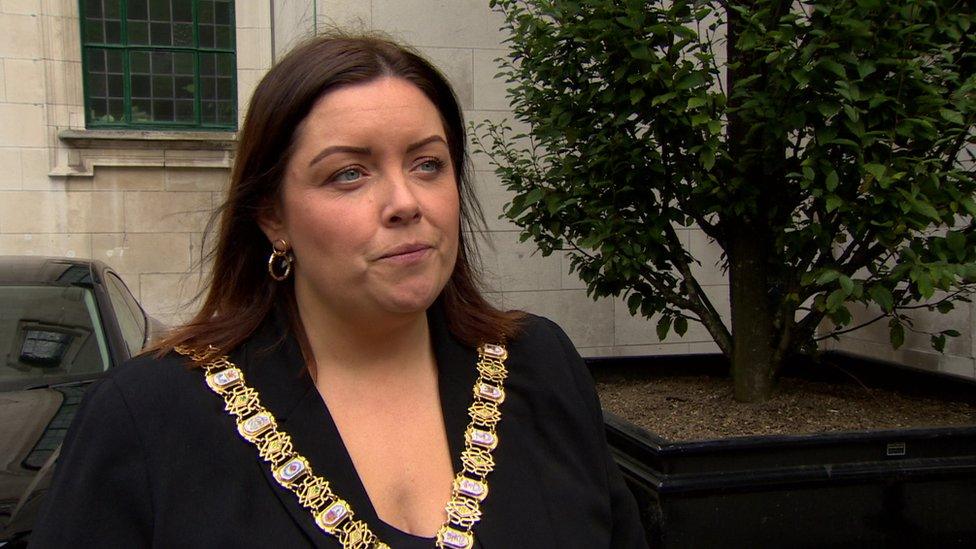
Belfast Lord Mayor Deirdre Hargey
Belfast Lord Mayor Deirdre Hargey said negotiations with government will now be "ramped up".
"We've been working hard with executive departments which are still functioning, still running, still have budgets and we are confident this partnership arrangement between councils and executive departments will deliver on this £1bn investment in the long term," she said.
Economist Dr Esmond Bernie said that the aim of a city deal was to grow the economy but warned that the deals are complex and some of the money is borrowed money which will have to be paid back.
"It is not free money," Dr Bernie said.

The Belfast Regional City Deal envisages:
Establishment of a Global Innovation Institute focusing on already successful sectors in the city, including cybersecurity, financial services, healthcare and agri-food.
Investment in digital connectivity to enable businesses across the region to connect to new markets and opportunities.
New tourist attractions which will include a new landmark venue in Belfast; development of facilities at Hillsborough and Carrickfergus castles; an extension of the Gobbins coastal path; the regeneration of Bangor seafront; and a focus on bringing more visitors into the Mourne mountains.
Extension of Belfast's Rapid Transit System to take in outlying districts.
Delivery of an extensive employability and skills programme, incorporating apprenticeship schemes, with a specific focus on digital skills.

Londonderry is also working to secure a separate city deal that would help drive investment in the north west.
Financial journalist Paul Gosling said Derry City and Strabane District Council's bid reflected the particular difficulties of the area.
He said that its bid is highly concentrated on building skills and strengthening infrastructure.

The Derry City and Strabane District Council city deal priorities:
Investing in innovation and digital.
Enabling infrastructure and regeneration and growing the private sector.
The expansion of Ulster University's Magee Campus.
The upgrade of crucial transport links to the region.
A range of objectives already laid out in the Strategic Growth Plan, external for Derry and Strabane.

- Published1 December 2017
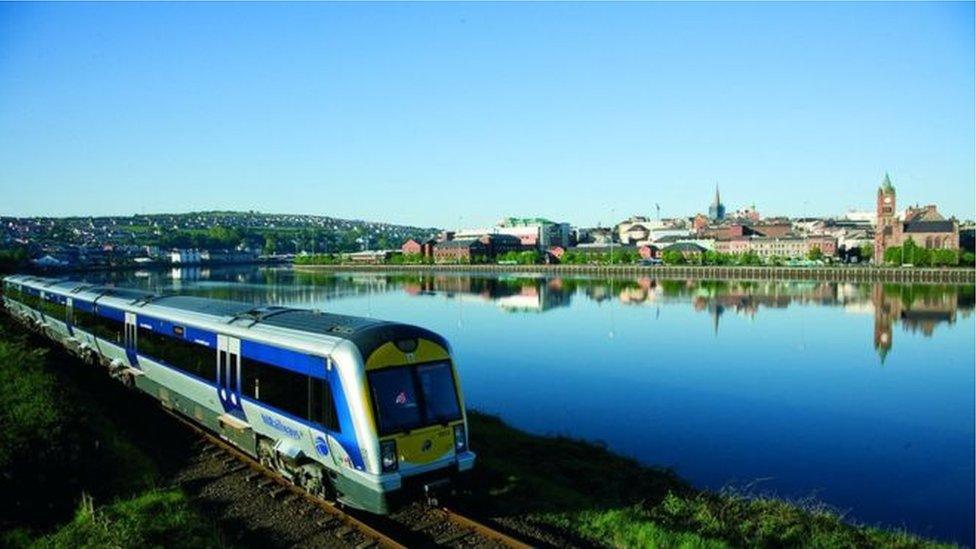
- Published23 November 2017
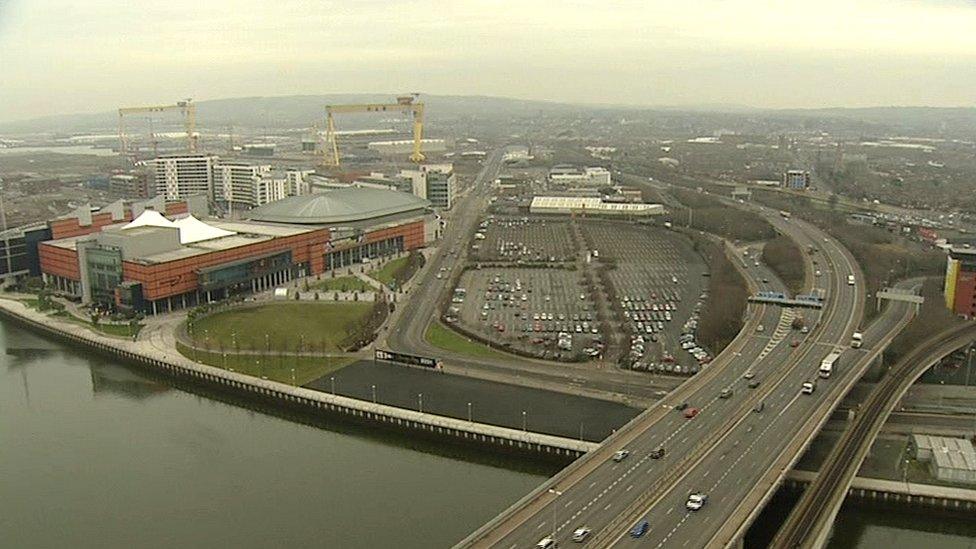
- Published28 August 2018
